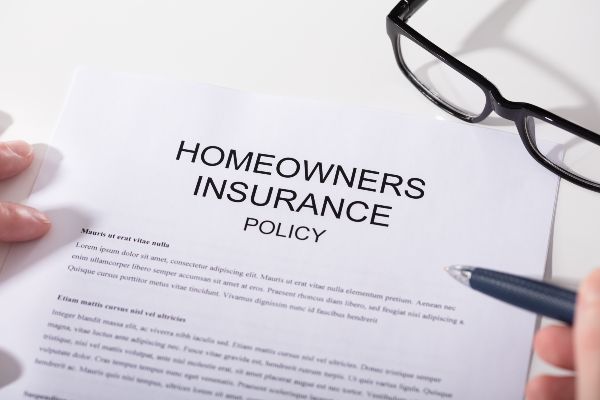Florida's homeowners buy insurance policies to protect their homes from fires, water damage, and losses. Therefore, they reasonably expect that the insurance company will pay for their losses if any covered damage occurs. However, this isn't always the case, as some insurance companies sometimes deny claims. What should I do if the insurance company denies my homeowner's insurance claim?? If an insurance company denies your valid claim, there are available legal remedies for you.. You can hire an insurance attorney from VG Law to commence legal action.

Similar to the benefits of health insurance coverage, homeowners insurance coverage is an excellent decision for your building. Lack of coverage can be catastrophic if you encounter any type of loss. So, it would be best to take out an insurance policy for your building to guard against loss. Furthermore, it would also help to have an insurance attorney review your homeowners' insurance policy before signing it.
Below are two reasons you should consider this insurance type.
Florida law doesn't mandate you to take out property insurance. However, the Insurance Information Institute states that lenders may demand proof of insurance from you. This is because it protects their investment insurance benefit and can cover your home's replacement cost if it's damaged.
Typical home insurance protects your house by providing its repair cost. However, it can go beyond guaranteeing just the physical structure. The coverage limit can extend to your personal property, belongings in the building's extensions, and even the medical expense of an injured visitor.
The type of coverage you purchase depends on how much you're willing to pay and the coverage type. Below are the different kinds of damage you can protect your house from with a homeowners insurance policy.
Yes, an insurance company can refuse to pay your property insurance claim. Usually, insurance industry players reject claims with a formal letter.. The denial letter will contain the reason for the denial. There are a variety of reasons why an insurance carrier will deny payment.
They are:
Many times an insurance carrier is justified in claim denial. The actions of the policyholders often give the insurance company sufficient reasons to reject their request for compensation. However, a responsible homeowner can take the following steps to ensure they always have a valid claim.
Negotiating an unfavorable insurance policy is the easiest step to an insurance claim denial. However, many homeowners don't read the contents of their contract before returning it to the insurance agent. If you don't read your property insurance policy, you won't know what it covers. Such misunderstanding can frustrate your claims process.
Carelessness is often sufficient evidence for a letter of denial. A homeowners insurance policy usually contains conditions you must keep to recover any damage. For instance, your insurance coverage may require that you keep fire fighting gear in your home. It could be that you have to maintain your property periodically. If you fail in any such terms, you may lose your right under the homeowners' policy.

An insurance company will require a list of your home items if you're claiming your personal property coverage. You may not recover any personal item you can't prove was damaged in the house. Furthermore, if you're filing your property damage from memory, you may forget some things. Therefore, it's best to keep a record or diary of all your home possessions.
An insurance company may evaluate your claims history when you file a property insurance claim. If you have ever made a fraudulent claim, the insurance adjuster may assume that your current claim is false.
A home insurance adjuster works for the insurance company to evaluate the damage on your home and determine whether your claim is worth paying. Many homeowners don't know that they can negotiate with insurance adjusters. Some who know don't know how to go about it. So, they make mistakes during the negotiations.
However, negotiating with home insurance adjusters is a skill that you can learn. We cannot overemphasize this skill's essential nature, so let's get on to the valuable tips.
Denied insurance claims can be painful. You also risk bearing the cost of the insured property. However, you can fight the denial. It would be best to let an experienced lawyer help you with this process.
The first thing you should do is re-evaluate your insurance policy to check whether your loss is covered. You can also look for any conditions you may have breached. If you find no problems, then you can appeal the denial with the company. Furthermore, if you have additional evidence, you can attach them. If the company isn't acting in bad faith, they'll reply favorably.
Getting an independent appraisal is a great option. This way, you can know if the damages you're claiming are reasonable. Furthermore, you can also find out the extent of your coverage. Whatever the case, an independent evaluation can help you know if the insurer denied your claim in bad faith..
Finally, if you can't get the company to do the right thing, it's time to talk to a professional. An experienced attorney can get you the compensation you deserve by filing a lawsuit on your behalf. If your claim is so good, you can even get the insurance company to pay your legal fees. So, don't worry about costs when thinking of getting a lawyer.
If you're buying a homeowners insurance policy, you'll have to choose between two major coverage types. They are replacement cost and actual cash value. So, what's the difference?
Replacement cost refers to the cost of replacing a thing with a new one. For instance, if your couch gets destroyed by water, its replacement cost is the price of buying a new version of that same couch. For buildings, the replacement cost would be the cost of rebuilding the structure. This would certainly include the cost of labor and building materials.
Actual cash value is the cost of a thing when it got spoilt. It's not the price of a newer version. For instance, the actual cash value of a 10-year old car is the cost of that car after ten years. This is different from the price of a new car. Actual cash value is often affected by depreciation.
Homeowners often prefer replacement cost to the actual cash value. The rationale is simple – you don't have to make up the price difference to get a new one. However, it would help to consider your financial status before choosing replacement cost. This is because you'll pay higher premiums than if it's actual cash value coverage.

Every honest homeowner deserves their insurance benefits. So, if your insurance company has denied your claim, you can proceed against them legally.. However, these companies have years of experience dodging claims. They also have lawyers that help them.
Therefore, proceeding against them alone can be challenging. You need not go through much stress if you can engage an experienced lawyer too. VG Law is home to some of Florida's finest insurance attorneys. With multiple years of experience winning insurance claims, we can win yours too if you call us today.